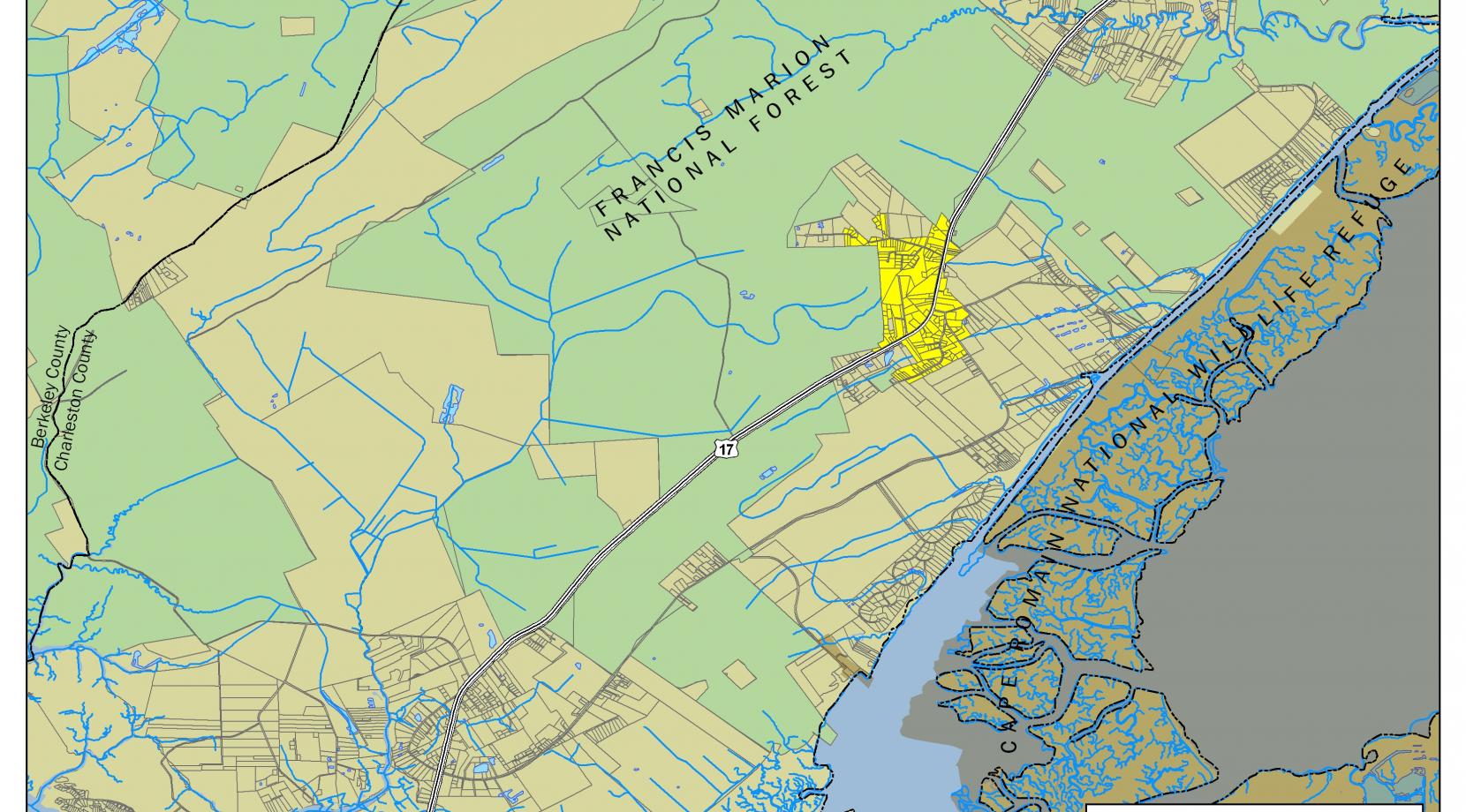S.C. Supreme Court sides with citizens in annexation dispute
The South Carolina Supreme Court ruled Wednesday that citizens have the ability to challenge a town’s annexation “when an annexing body arguably engages in underhanded conduct,” overturning a lower court’s decision.
The decision reverses the state’s Court of Appeals, which ruled that citizens lacked “standing” to challenge the Town of Awendaw’s annexation of a strip of land in the Francis Marion National Forest, even though town officials engaged in nefarious conduct.
The Supreme Court disagreed, holding that citizens have the right to object to annexations “where there is a credible allegation that the annexing body engaged in deceitful conduct.”
That is, in fact, what the citizens alleged here.
Awendaw Annexations


A town can only annex land if it borders the parcel it seeks. In this case, property owners outside Awendaw’s town limits wanted their land—parcels within the Francis Marion National Forest—to be annexed to allow for more intensive development.
Awendaw then annexed a 10-foot wide strip of the Francis Marion National Forest to extend the town’s border to the land it wanted. The town told the public the United State’s Forest Service had petitioned for the annexation—a legal requirement—but that wasn’t true.
In reality, the town was relying on a decade-old letter about a different land transaction; in it, the Forest Service voiced no objection. The town pretended this general non-objection was a specific “petition” requesting annexation of land leading to the Nebo Tract.
Local citizens challenged the misrepresentation in court. But after a trial court agreed and set aside the annexation as unlawful, the S.C. Court of Appeals reversed that decision and held that the citizens were not allowed even to bring their claims under restrictive standing laws.
The Supreme Court reached a different conclusion.
“We hold today a party that can demonstrate the annexing body engaged in nefarious conduct in purportedly complying (with the requirements) has the standing to challenge the annexation,” the justices wrote.
The Town of Awendaw tried to pull a fast one, and when caught, it claimed no one had the right to object,” said Laura Cantral, executive director of the Coastal Conservation League, one of the parties in the suit. “That goes against the most basic tenants of government responsibility, and we’re happy the court upheld the rights of citizens to challenge deceitful and underhanded conduct by their government.
SELC represented the League in this case.
Awendaw has used the Forest Service’s decade-old letter to annex other strips of land, too. It is unclear what this ruling means for those acquisitions. But it is clear this ruling gives citizens the power to challenge government annexations when those transactions are not above board.
The Supreme Court’s decision restores accountability by protecting the rights of South Carolinians to challenge deceitful and unlawful government conduct in court,” said SELC’s Blan Holman. “Judicial review is a necessary check on government deceit and ensures that annexations stay above-board and lawful.
